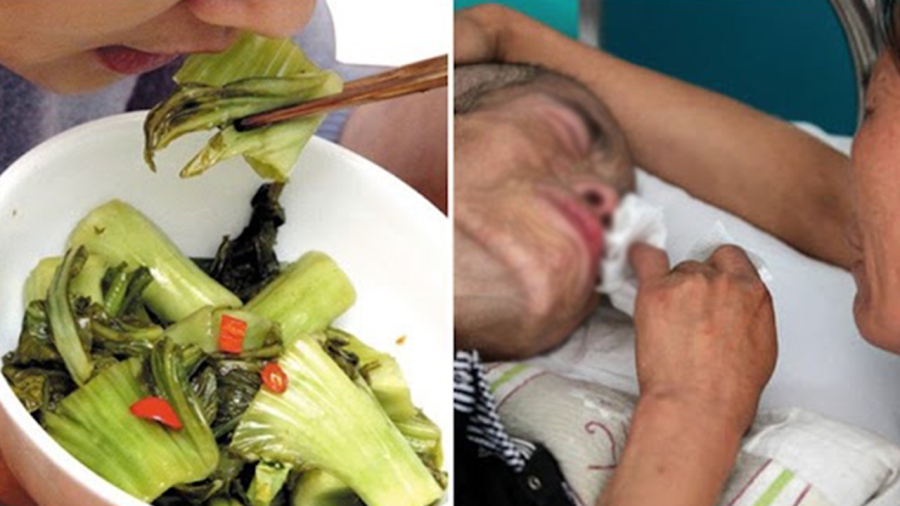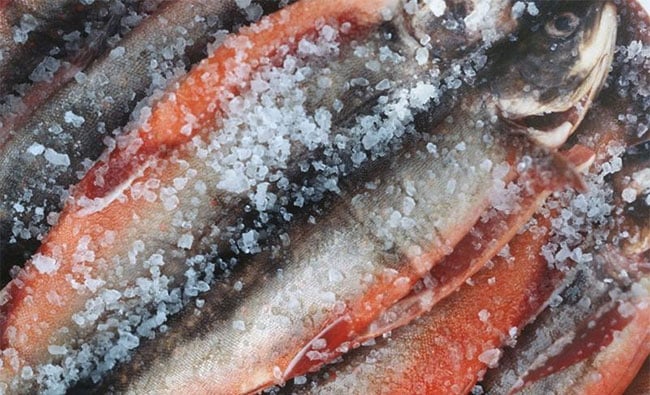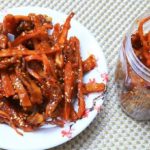
Processed meat
Cold cuts, sausages, smoked meat… are popular products loved by many people for their convenience and taste. However, these foods contain chemical preservatives to keep them fresh and appetizing, which can also be carcinogenic.
Nitrites and nitrates in processed meat are associated with an increased risk of cancer, especially colorectal and rectal cancer.
Grilled red meat
Almost everyone loves this dish. However, scientists have found that grilled red meat releases heterocyclic amines, a common carcinogen. The National Cancer Institute also states that cooking meat at high temperatures like on charcoal can produce strong carcinogens and increase the risk of developing malignant cancer cells.
Unsaturated cooking oil

Unsaturated cooking oils are extracted from plants through complex chemical processes. These oils contain a large amount of omega-6 fatty acids. The metabolism of these fatty acids can increase the risk of heart disease or the risk of developing skin, pancreatic, and colorectal cancer.
Pickled vegetables
Pickled cucumbers and pickled tomatoes are familiar dishes in Vietnamese families. However, experts say that if you do not know how to prepare and consume them correctly, you are at risk of cancer. When cucumbers and tomatoes are still sour, spicy, and not well fermented, the amount of nitrate converted into nitrite will combine with the amino acids in the food and convert into nitrosamine. This substance has been proven to be carcinogenic.
In addition, if not properly preserved during processing and fermented for too long, they can be susceptible to bacterial contamination. Furthermore, this dish also has a high salt content, which is harmful to health.
Salted fish

Some dried salted fish often have high salt concentrations, while others may contain flavorings and nitrites. Nitrites, when entering the body, react with proteins and form nitrosamines – a highly carcinogenic substance. It is also one of the four main chemicals that cause pollution in food and can increase the risk of developing tumors in the digestive system.
Healthy eating tips for a strong body
Eat in moderation
The foundation of any healthy diet is moderation. But what does moderation mean? How much is the standard? It depends on your overall diet, so that you can achieve your ideal weight without feeling hungry. Therefore, set a moderate eating regimen that balances carbohydrates, protein, fat, fiber, vitamins, and minerals…
Moderation means eating less than what we are currently eating. Specifically, eat less unhealthy substances (such as saturated fat) and eat more healthy substances like vegetables, tubers, and fruits. This does not mean you have to give up your favorite foods. For example, you can eat bacon once a week for breakfast, but you should consider moderation if you consume it for lunch or dinner, and it would be unbalanced if you have it with a box of donuts or sausage pizza.
Trying does not mean you have to eliminate certain foods, as it will make you crave them more. Eat less and eat them less frequently. One tip is to use smaller bowls or dishes. If you’re hungry, add more vegetables or complete your meal with fruits.
Add colorful fruits and vegetables
Fruits and vegetables are the foundation of a healthy diet. They are low in calories, rich in nutrients, contain vitamins, minerals, antioxidants, and fiber.
Try to eat colorful fruits and vegetables in your meals every day, as it not only provides more nutrients but also offers various benefits. The goal is to consume at least 5 colors of fruits and vegetables every day. Some great choices include:
– Green vegetables: Spinach, kale, lettuce, broccoli, Brussels sprouts because they contain calcium, magnesium, iron, potassium, vitamins A, C, E, and K.
– Sweet vegetables: Natural sweet vegetables like corn, carrots, beets, sweet potatoes, yams, onions, pumpkins add sweetness to meals and reduce cravings for other sweet foods.
– Fruits: Fresh fruits provide fiber, vitamins, and antioxidants. For example, strawberries have anti-cancer properties, apples provide fiber, mango provides vitamin C…
It is important to know that the vitamins in food are not drugs and cannot replace medication. The benefits come from regular consumption and the combination of different types.
Eat good starch and whole grains
Aside from meeting our dietary needs and taste, grains and starches are also rich in phytochemicals and antioxidants, which can prevent heart disease, cancer, and diabetes. Research shows that people who eat more whole grains have a healthy heart. Here is a simple definition of good starch and bad starch:
– Good starch includes whole grains, legumes, fruits, and vegetables. Healthy starch is digested slowly, helping you feel full longer, maintaining blood sugar levels, and stabilizing insulin levels.
– Bad starch includes foods like white flour, refined sugar, polished rice, without bran, fiber, and nutrients. Bad starch is quickly digested, causing energy spikes and fluctuations in blood sugar.
Therefore, eat more whole grains, including brown rice, wheat, oats, corn… Try different types of grains to find out which one you like the most. Make sure they are 100% whole grains. Avoid processed foods like white bread, instant noodles, vermicelli, and breakfast cereals that are not whole grains.
Be flexible with protein
Protein provides us with energy for survival and growth. The protein in food is divided into 20 amino acids, which help the body grow and are essential for maintaining cells, tissues, and organs. Lacking certain proteins in our diet can slow down growth, reduce muscle mass, weaken the immune system, and weaken the heart and respiratory system. Protein is especially important for children, teenagers…
Here are some guidelines for eating protein for a healthy body:
– Try different types of protein. If you are a vegetarian, you can get protein from legumes, nuts, Dutch beans, tofu, soybeans…
– Legumes: Protein is high in black beans, navy beans, and lentils…
– Nuts: Almonds, walnuts, cashews are excellent choices.
– Soybean products: Try tofu, soy milk, meat and vegetable sandwiches…
– Reduce protein in your diet: Many Westerners eat too much protein, which can be harmful to the liver, kidneys, and cause obesity. Experts suggest eating more plant protein than animal protein, and each age group requires a different amount of protein.
Limit sugar and salt
Sugar increases and decreases energy levels and can contribute to various health problems, as well as obesity. Unfortunately, reducing sweet desserts is just part of the solution. We often do not realize the amount of sugar consumed each day. A large amount of sugar can be found in bread, canned soups and vegetables, vegetable butter, french fries, fast food, soy sauce, and tomato sauce. Some advice is:
– Avoid sugary beverages: 1.5 cups of soda contains about 10 teaspoons of sugar, more than the recommended daily limit. Therefore, try lemon water or fruit juice instead.
– Eat natural sweets like fruits or peanut butter…
– Check the ingredients carefully: Sugar is often disguised with hidden terms on food labels, such as cane sugar or maple syrup, corn sweetener or corn syrup, honey or molasses, brown rice syrup…
Shopping Guide for Danang Specialties: Top 12 Gifts with Meaningful and Quality Choices and Addresses
Are you looking for a unique and special gift idea for your loved ones? Whether you are near or far from home, a selection of Da Nang specialties from Dien May XANH is the perfect way to convey your care. Explore our list of top 12 iconic specialties from Da Nang and enjoy the richness of flavor they offer!



































